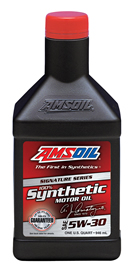07 Mar What does “cold” mean to an engine?
Your engine is far more sensitive to cold ambient conditions than you might think.
The definition of “cold” is different for each person and also different for your car engine.
Cold flow matters to all drivers
While true, oil does thickens more in winter weather and causes increased starting difficulty, an engine is considered “cold” after it sits long enough to cool to ambient temperature, typically overnight. As it cools, oil viscosity increases (it thickens). When it’s time to start your vehicle in the morning, the thicker oil doesn’t flow through the engine as readily as it does when it’s at operating temperature.
Cold, thick oil, can be slow to flow through the tiny oil passages throughout your engine. It’s during this time that vital engine parts can operate without lubrication, increasing wear.
Poor lubricant cold flow properties can also affect variable valve timing (VVT) systems. Engines equipped with VVT have solenoids with tiny openings through which the oil flows and acts as a hydraulic fluid to actuate VVT components. Oil that fails to properly flow through these tiny passages reduces VVT performance, which can trigger a check-engine light.
Lower pour points equal better protection
An oils pour point reflects how well it flows at low temperatures and how well it protects engines against cold-start wear. This is vital considering most wear occurs at startup.
Pour point is defined as the lowest temperature at which motor oil will continue to flow under prescribed conditions. The poor point tests, ASTM D97, spell out the standard procedure for determining oils pour point. The sample is slowly cooled and tilted sideways every time the temperature drops 5°F. The pour point is the lowest temper ature at which the oil still flows. Oils with lower pour points flow more readily at startup, providing critical lubrication faster for reduced wear and maximum engine life. Whether you’re in northern Wisconsin in February our Arizona in August, this is important if you want to protect your engine
ature at which the oil still flows. Oils with lower pour points flow more readily at startup, providing critical lubrication faster for reduced wear and maximum engine life. Whether you’re in northern Wisconsin in February our Arizona in August, this is important if you want to protect your engine
Amsoil offers better startup lubrication
Amsoil synthetic lubricants provide better cold flow properties than conventional oils and most other synthetic oils.Our synthetic base oils don’t contain the waxes inherent to conventional oils. As a result, they provide increased fluidity during cold starts. This translates into oil that flows almost immediately through your engine, protecting it against wear.

